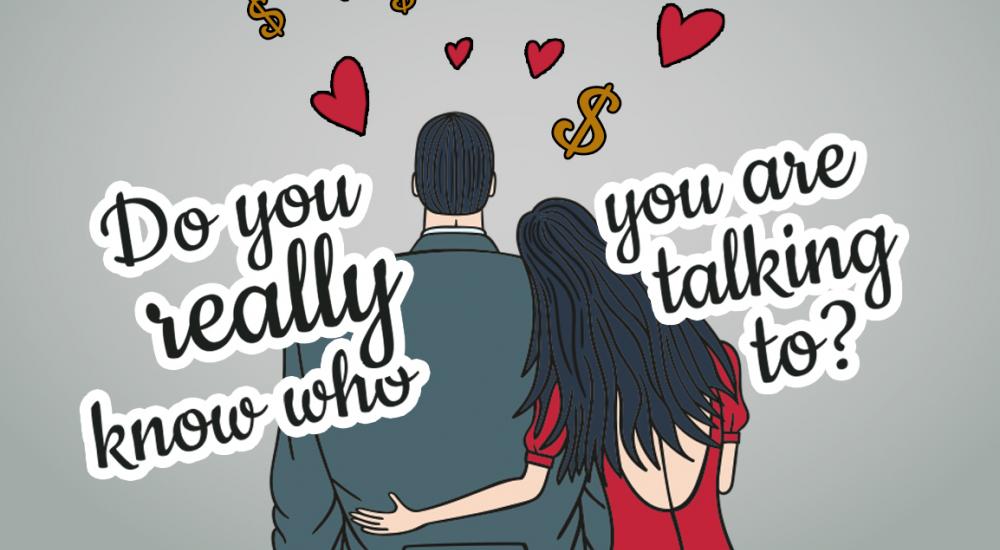
While there are many success stories of people who’ve met through a dating website or app and fallen in love, unfortunately there are also some very sad stories where people have fallen victim to romance scams.
In 2019 Australians reported to Scamwatch losses of more than $28 million as a result of romance scams. Consumer protection agencies across Australia are warning people to never send money to someone they haven’t met in person, and to be aware of some of the hallmark signs of a romance scam.
Scammers can spend many months sending messages declaring their love and building up trust with a person before they ask for money. Scam victims sometimes send money because they feel the need for funds is genuine and are prepared to invest in the ‘relationship’, or they might send money towards an airfare believing that the love-interest will come and see them.
But while the victim is feeling loved-up, the scammer ends up being cashed-up.
Tips to avoid romance scams:
- Before you let someone know you’re interested in them, do some checks. Do a Google Image search or TinEye reverse image search to check if their profile is legitimate.
- Be wary if the person you’ve met online quickly wants to move communications away from the dating website or app. For example, they might want to communicate with you by email, Facebook Messenger, WhatsApp or Viber.
- After gaining your trust over time they ask you to send money. They might say their money is stuck in a legal problem or they have a sick relative and they need money to cover the medical costs.
- If there’s no way that you can meet them in person, without you having to send them money, and they make excuses about why they can’t travel to see you, then it could be a scam.
You also need to be careful about the personal information that you share. Many romance scam victims not only lose money, but they also experience fraud – e.g. they discover that new mobile phone accounts have been set up in their name, or the scammer has accessed their superannuation account.
If you’ve already given your bank account details to a scammer, contact your bank or financial institution to stop any further losses.
Contact IDCARE if you’ve fallen victim to identity theft. It’s important to act quickly to reduce any potential for further damage. IDCARE is a free government-funded service which will work with you to develop a specific response plan to your situation and support you through the process. Visit www.idcare.org or call 1300 IDCARE (432273).
Report scams to the national Scamwatch service at scamwatch.gov.au/report-a-scam
For more information visit scamwatch.gov.au/types-of-scams/dating-romance


